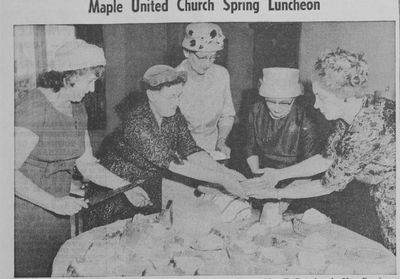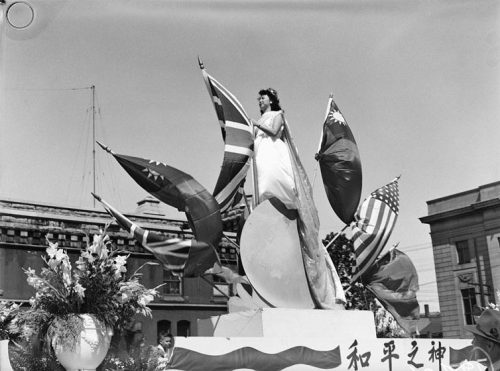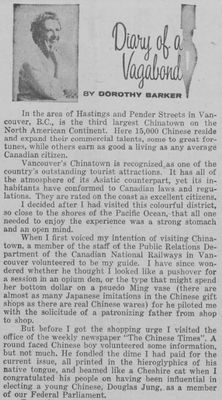
From Uncertainty to Opportunity
Despite the difficulties they faced, Chinese people did build a sizable cultural community thanks to the rapid growth of Chinese presence in a few selected regions and many Chinese families found these resulting "Chinatowns" provided them with a community and cultural oasis.

Ethnic Isolation & Community
The Chinese immigration boom in Ontario in the 1930s quickly drew attention from the Canadian government. At the time, non-European immigrants, especially non-Caucasian immigrants were seen by the authority as potential trouble-makers that challenged the well-being of Canadian society. In 1923 the Canadian Government issued the Chinese Exclusion Act to restrict population flows from China into Canada. The side panel attached a link to Mr. John Nelson's speech before the Empire Club in 1923 asserting that Chinese and Japanese immigrants present immediate problems to Ontario's prosperity.

The 15 years between 1945 and 1960 saw rapid change in Chinese society: the end of the Chinese civil war with a communist takeover in 1949, the Great Leap Forward movement that claimed millions of lives in 1957 and, later, the widespread famine in the early 1960s. All these ongoing social and environmental catastrophes emphasize the uncertainty in China. During this period newcomer Chinese Canadians often found the ethnical isolation in Canada a mixed blessing: although they could only make limited contact with non-Chinese communities, the presence of the Chinese population grew quickly in certain regions, allowing workers to form labour unions and the earliest idea of a cohesive community. Thanks to the quick rise of Chinese Canadian communities, settlers were no longer alone in the search for job opportunities or running businesses. And with second-generation immigrants entering the Canadian workforce, uncertainty gradually became the dawn of opportunity.

These political discriminations against Chinese immigrants represented Canadian society's unfriendly attitude towards Chinese settlers at the time. Many Chinese people were denied access to many economic and social opportunities and had no choice but to live inside the confine of the existing Chinatowns like in Markham, Downtown Toronto, and York Region. With legal restrictions and widespread social hostility, those who seek new opportunities in Canada found it very hard to settle in places with no existing sizeable Chinese communities. The development of the Chinese communities in these locations is more concentrated and has limited spread, making these growing communities essentially ethnical isolated.
